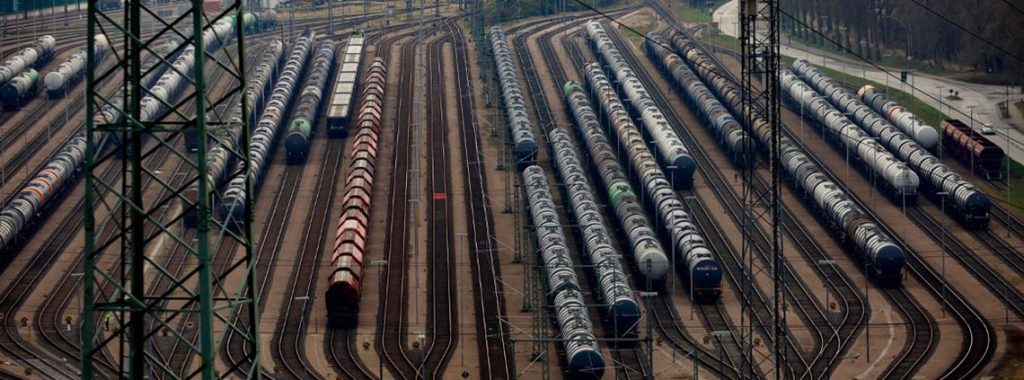Germany to prioritise coal and oil freight amid energy crisis

The German government has approved legislation that will require train operators to prioritise carrying mineral-oil products and hard coal destined for power generators over other freight and passengers.
The legislation – drawn up by the economy ministry – is in response to an Energy Supply Assessment that warned of possible disruptions in supplies to coal power stations, which have been exacerbated by transport waterways drying up due to recent droughts.
Around a third of Germany’s coal imports travel through the River Rhine, but barge loads have had to be reduced – sometimes by up to three-quarters – to reduce the weight and avoid vessels running aground.
Disruptions have already occured. Earlier this week, a ship transporting coal to Germany became stuck in the River Waaldue to low water levels, the second time this has happened in a matter of days.
The government’s energy supply assessment commented: “Due to very reduced domestic shipping, accumulated coal stocks could quickly fall.”
It added: “High demand and scarce transport capacity in rail freight are leading to a challenging situation in coal and oil logistics.”
The decision to prioritise coal movement on trains comes as Germany looks to rapidly ramp up coal-fired energy, as part of a wider aim to reduce reliance on Russian gas imports.
Before the start of the Russia-Ukraine conflict, Germany had planned to phase-out coal by 2030. To wean itself away from Russian energy imports, several mothballed coal-power sites are now coming back on line. In addition, 15 coal-powered plants that were due to be phased out next year will now continue to operate.
“We want to free ourselves from the grip of Russian energy imports as quickly as possible,” Robert Habeck, German economy minister, said on Wednesday in an emailed statement. “This requires very sophisticated logistics, which makes it necessary to prioritise energy transports by rail.”
But concerns have been raised that giving priority to coal will add more problems to the nation’s already at-capacity freight network.
“This is not an easy decision because it could mean that in some cases other trains have to wait,” Volker Wissing, transport minister, said. He added: “It is all the more important to create clear rules today before the additional need for energy kicks in and transport demand increases in autumn and winter.”
The prioritisation will last for the next six months.
At the same time as Chancellor Olaf Scholz’s cabinet approved the trains measure, the government also passed new rules that aim to reduce gas consumption by a fifth this coming winter.
These rules include bans on heating private swimming pools, and on most outdoor lighting for buildings and monuments, and from September, all public buildings apart from hospitals are to be heated to no more than 19 degrees centigrade.

